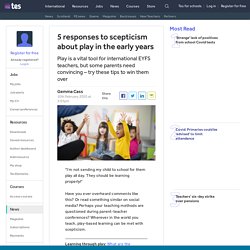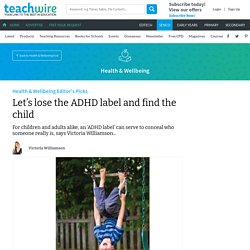

LearnEnglish Kids. Primary Plus English course (6-11 years) During the Covid-19 pandemic many of our teaching centres are closed. Classes will continue online and our teachers look forward to bringing their passion and expertise into your home. Primary Plus, developed by our team of English experts, will spark your child’s imagination, so they can express themselves with confidence that goes beyond their English language skills.
Our new approach means your child will have a more rewarding learning experience, getting the most out of learning English at home with a combination of: live online classes with a specialist teacherinteractive independent study, set by your child's teacher to prepare them for the live lesson – all in a safe, easy-to-use learning environment. You will have access to your child’s personal dashboard. Immersive classes with expert teachers to boost English speaking skills Happy learners make confident speakers! Developing the life skills your child needs for their future. Find a course. Watch the Learning Time with Timmy video series. 5 ways to win over parents to the importance of play in international EYFS.
"I’m not sending my child to school for them play all day.

They should be learning properly! " Have you ever overheard comments like this? Or read something similar on social media? Perhaps your teaching methods are questioned during parent-teacher conferences? Wherever in the world you teach, play-based learning can be met with scepticism. Learning through play: What are the benefits? Digital storytelling: 4 steps to create digital stories for language learning Early years foundation stage: Everything you need to know The idea that children learn best through play is not new, with the likes of Vygotsky, Piaget, Montessori, Reggio Emilia and even the UK’s Department for Education promoting the value of play in early years education.
You can be forgiven for finding this frustrating and maybe even a little insulting, given the time and consideration that has gone into setting up your classroom environment and the learning experiences that are available. 1. 2. 3. 4. 5. 1. 2. 3. 4. 5. 5 ways to win over parents to the importance of play in international EYFS. Building on what children know (free article) - Early Childhood Australia. ‘Take the child on from where they are now’ has long been a slogan in early childhood, but I wonder, as educators, if we always do it?
My four-year-old granddaughter, Mia, is extremely capable with modern technologies; she can use a mobile phone and digital camera and browse a DVD to select particular scenes in a movie. She is not ‘print literate’, but she is ‘techno-literate’. I’m not advocating techno-skills for babies, but I am conscious that this competence may not be valued as she goes into preschool. She may well be told ‘that’s ok at home, but we do things differently here’. My second granddaughter, Maddie, when aged five, entered Prep and, when I asked what she was learning ‘at big school’, she said: ‘We do an awful lot of counting’. My concern is not just that the Prep curriculum is narrow; it’s that the fundamental premise of recognising and building on children’s existing concepts, skills and understandings was not part of the pedagogical mindset at school entry.
References. Assessment for learning. Observation, Assessment and Planning - Early Years Matters. The EYFS Profile summarises and describes children’s attainment at the end of the EYFS. It is based on on-going observation and assessment in the three prime and four specific areas of learning, and the three learning characteristics, set out below: The prime areas of learning: • communication and language • physical development • personal, social and emotional development The specific areas of learning: • literacy • mathematics • understanding the world • expressive arts and design The learning characteristics: • playing and exploring • active learning • creating and thinking critically A completed EYFS Profile consists of 20 items of information: the attainment of each child is assessed in relation to each of the 17 Early Learning Goals descriptors, (ELGs) together with a short narrative describing the child’s ways of learning expressed in terms of the three characteristics of learning.
The primary uses of EYFS Profile data which have informed the development of the Profile are as follows. Information_sheet_-_Guidelines_for_documenting_children_s_learning. Pre-birth to Three: Observation, Assessment and Planning. Let’s lose the ADHD label and find the child. When I trained as a primary school teacher 15 years ago, these were some of the words used to describe children with ADHD: ‘Difficult.’

‘Challenging.’ ‘Disruptive.’ There were others, whispered by harassed-looking teachers in the staffroom or concerned parents at the school gates, but none seemed to be positive. When I got my first ‘real’ class to teach, and saw that some of the children came with the dreaded ‘ADHD’ label attached, I approached the new term with butterflies the size of dragons in my stomach. But here’s what it took me a few more years to learn… Michael wasn’t ‘difficult’ He struggled with impulsiveness, often shouting out in class, talking over other children and getting into arguments during games when he found it hard to wait his turn.